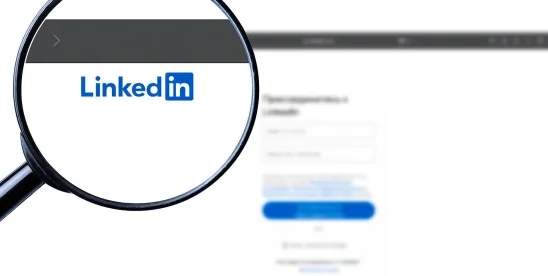If you’re looking for a simple way to enhance your LinkedIn presence and keep your content consistent (and who isn’t?!), LinkedIn’s data archive feature can be incredibly helpful. This tool allows you to download a full history of your LinkedIn activity, including posts, connections and recommendations, which can be invaluable for refining your content strategy, identifying trends and reconnecting with your network. Here’s how to make the most of it.
Step 1: Request Your LinkedIn Data Archive
To get started, go to Settings & Privacy on LinkedIn, then under Data Privacy, select Get a copy of your data. Choose “Shares” to capture all of your past posts. LinkedIn will send you an email with a download link within 24-48 hours, and you’ll have 72 hours to download it. Inside, you’ll find a CSV file containing all of your posts, a valuable foundation for reviewing and building future content.
Step 2: Organize and Audit Your Content
With your data archive ready, open the CSV file in Excel or Google Sheets to sort and analyze your content. This process will give you insights into what’s resonating with your audience and enable you to identify content that can be repurposed.
- Sort by Engagement: Identify which posts received the most likes, comments and shares. These high-engagement posts reveal what your audience values, offering a great starting point for new content.
- Group by Theme: Organize posts by topic, such as industry insights, professional advice or client success stories. These themes can become content pillars to streamline your future content planning.
- Highlight Evergreen Content: Find posts that remain relevant over time such as professional tips, case studies, or industry advice. These evergreen posts can be easily refreshed and reused, adding value to your content calendar.
Step 3: Repurpose and Refresh High-Impact Content
One of the main benefits of the LinkedIn data archive is the ability to repurpose successful posts. Here are some ways to make the most of your archive:
- Update Top-Performing Posts: Take posts that generated high engagement and refresh them with new insights or updated information.
- Expand Short Posts into Articles: For recurring themes or popular topics, consider expanding these into full LinkedIn articles or blog posts. This allows you to explore the topic in greater depth and reach a broader audience.
- Create Visuals: Posts with useful data or actionable tips can be transformed into visual content, such as infographics or slides. Visual content often garners high engagement and can diversify your posting strategy.
- Build a Content Calendar: Use the archive to establish a consistent posting schedule. High-engagement themes can become recurring features, helping you stay organized and aligned with your content goals.
Step 4: Strengthen Your Network
The LinkedIn data archive also includes your connections and recommendations, making it a helpful resource for reconnecting with your network.
- Reconnect with Old Connections: Use the archive to identify people you haven’t reached out recently and send them a message.
- Map Your Network: Organize your connections by industry or professional background to uncover new collaboration opportunities or potential mentors.
- Repurpose Recommendations: LinkedIn’s archive includes your recommendations, which can be repurposed as client quotes/testimonials for your website and social media, building credibility and enhancing your online presence.
Step 5: Keep Your Archive Updated
To ensure your content strategy remains relevant, download your LinkedIn data archive every few months. Regularly revisiting this data helps you adjust to any shifts in engagement trends, making it easier to maintain a strong LinkedIn presence.
Make the LinkedIn Data Archive Part of Your Social Media Strategy
The LinkedIn data archive is a valuable tool for anyone looking to improve their LinkedIn strategy. By analyzing past posts, repurposing effective content and reconnecting with your network, you can maintain a consistent, high-quality presence that aligns with your professional goals. If you haven’t used this feature yet, it’s worth exploring – it can help streamline your content strategy and ensure you’re making the most of your LinkedIn efforts!




 />i
/>i

